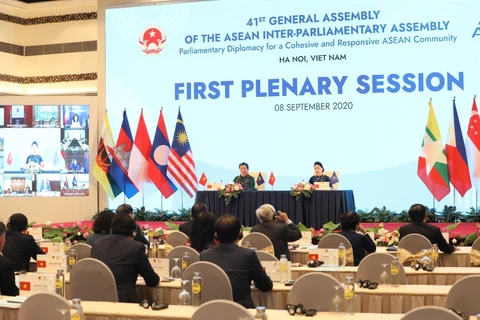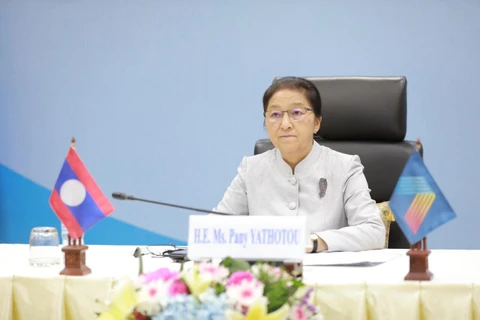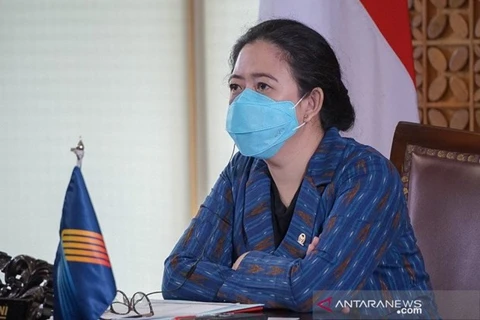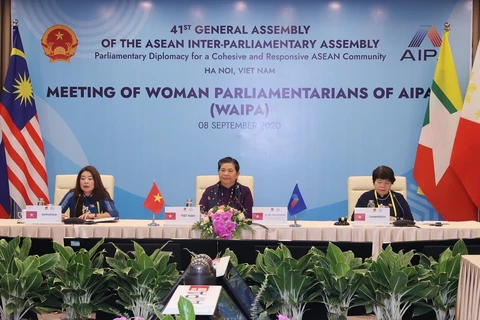Bangkok (VNA) – ASEAN must not loosen up its solidarity in facing any kind of threat, President of the Thai National Assembly Chuan Leekpai remarked at the first plenary session of the 41st General Assembly of the ASEAN Inter-Parliamentary Assembly (AIPA-41) on September 8.
The top Thai legislator said ASEAN is facing an unprecedented health crisis – the COVID-19 pandemic – which has created several new and most difficult challenges many countries in the region are experiencing. Apart from the enormous pressure on the medical infrastructure and public health, it is disrupting lives, societies, and economies, he noted.
He voiced his concern that the regional countries are mainly focusing on immediate internal needs – inevitably with external relations being less urgent.
“The decline in regional coordination at this time, when ASEAN is being confronted with difficulties resulting from geopolitical and strategic uncertainty, could possibly adversely affect its centrality, which has been a crucial basis for its role in regional as well as world affairs.”
Leekpai proposed three points that the AIPA member parliaments can work closely together during this difficult time to achieve common objects.
First, he suggested the parliaments reaffirm their direct connection with the people. Embodying ASEAN’s vision for a people-centered community, members of parliament must always stay close to and represent the interests of people, particularly the most vulnerable.
Without seeking to understand the real problems of the people, each parliament will not be able to effectively fulfill their mandate to oversee and provide insights for the executive branch.
Second, at the regional level, it is preferable for AIPA to exchange knowledge and experiences among members of parliament, he continued, including knowledge on a new and unexpected way of life under the current and post-pandemic situation, can be shared.
Members of parliaments in different countries can directly communicate with one another and help parliaments to function more smoothly and effectively.
Finally, the top Thai lawmaker urged ASEAN community building to be strengthened through the harmonisation of laws of the member states. For ASEAN to truly attain a regional community, it is asked to create common legal standards across the region, he said.
He further noted that each parliament can still maintain its responsibility for the enactment of laws to regulate affairs within its own jurisdiction. Harmonisation is nevertheless essential to ensure that the same or similar rules and regulations are moving in the same direction, most notably trade, investment, and movement of professionals, making our region, not only friendly, but also legally friendly.
“If the parliament is strong, the executive will be strong,” he said. “If inter-parliamentary coordination is strengthened, this would surely amount to an invigorated ASEAN.”
“We must revitalise ASEAN to maintain and sustain unity and centrality, which is truly our aim and aspiration, and to uphold our source of pride through which we have existed together for more than half a century.”/.
VNA

























